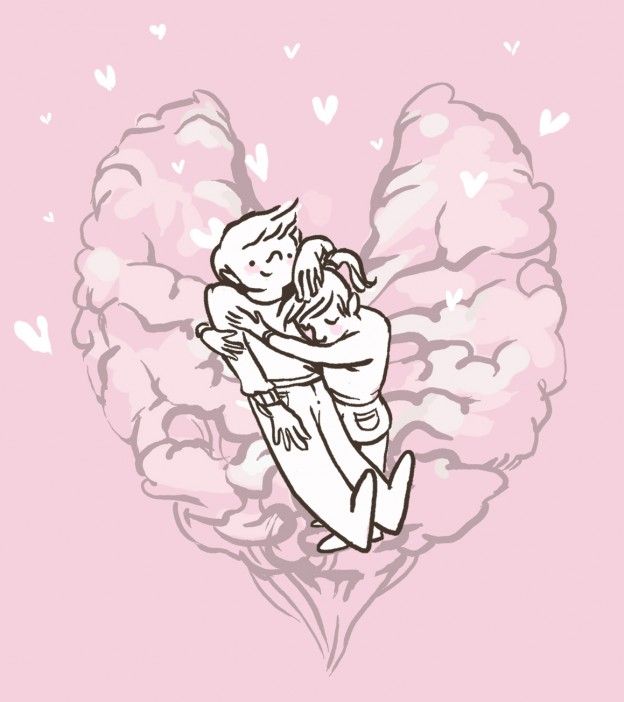Love is an insane neurochemical flood.
For those of us lucky enough to have experienced it, this comes as no surprise.
A wide variety of neurochemicals have been implicated in this mess, including: oxytocin, sex hormones testosterone and estrogen, dopamine, vasopressin, serotonin, and norepinephrine [1] . Each of these chemicals has a diverse array of targets within the brain, so their combined impact is multifaceted and far-reaching. In fact, you can see a really neat graphic depicting a variety of these effects here . However, there is one class of compounds in particular that deserves some extra attention.
Nerve growth factors (NGFs), or neurotrophins (NTs), are proteins which mediate the survival and upkeep of neurons throughout the CNS, and they have been found at elevated levels in the brains of newly in-love couples. This study , conducted by Enzo Emanuele and his colleagues at the University of Pavia, Italy, compared plasma levels of four separate NTs from couples who had fallen in love within six months of the trial to those from couples in long-term relationships and also individuals not involved in a romantic relationship.
The lovebirds had significantly higher NT levels than both long-term couples and singles. On top of this, the degree to which NT levels were elevated was positively correlated with the “intensity” of romantic love experienced, as indicated through subjects’ responses on the Passionate Love Scale (yes, there is actually a test which is thought to reliably indicate the intensity of romantic love of an individual).
In short, while in love, our brains are bathed with heightened concentrations of proteins which help keep our neurons alive.
Evidently, the neurochemical effects of head-over-heels love wear off eventually. And heartbreak is accompanied by its own list of stressors, which can in some cases lead to severe depression. It is currently unknown whether the impacts of love-induced NT elevation have any long-terms effects on an individual’s health.
Perhaps future research will reveal whether it is, in fact, better to have loved and lost, than to never have loved at all.
- Zeki, S. (2007). The neurobiology of love. FEBS Letters , 581 (14), 2575-2579. Retrieved from http://www.sciencedirect.com/science/article/pii/S0014579307004875
